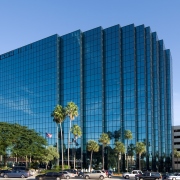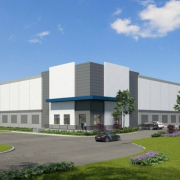New CBRE Report Debunks Generational Myths About What Employees Want In The Workplace
Age is less of a factor than widely thought when it comes to workplace preferences in the U.S., according to a new workplace strategy report by CBRE Group, Inc.,
Designing the office of the future? Don’t plan it around (what you think you know about) U.S. millennials. The study, based on aggregated CBRE Workplace Strategy surveys from more than 5,500 office workers across numerous industries, found that while current assumptions about millennials are driving the design of many workplaces today, there is actually little difference in workplace preferences between millennials, Generation Xers and baby boomers.
“The results of this study clearly suggest that variety, choice, access and transparency—attributes typically associated with what millennials want—are indeed important, but not only for millennials,” said Georgia Collins, CBRE’s senior managing director for Workplace Strategy. “Our study actually found that most of these attributes are equally important to Generation Xers and baby boomers.”
With millennials currently accounting for approximately 24 percent of the adult population in the U.S., and with a projected 75 percent of the workforce being millennials by 2025, much has been made about this new workforce generation, particularly when it comes to workplace strategy. While this is causing many companies today to debate how to balance the needs of millennials with those of a more tenured workforce, the CBRE study suggests that the generational divide is more perception than reality.
Among some of the most notable findings in the report:
Millennials are collaborative—they report spending approximately 38 percent of their time interacting with others—but Gen Xers and baby boomers are equally as collaborative. In fact, millennials actually report spending slightly more time doing individual focused work than their colleagues from other generations.
When asked what types of spaces would enhance a future workplace, millennials placed most of their value on spaces that allow them to think and concentrate, followed by spaces to meet and collaborate, and spaces for learning and training. Of least importance to millennials was space for socializing (although they still rank this as considerably more important than do their Generation X and baby boomer colleagues).
Contrary to widespread assumptions, when asked how they would like to work in the future, millennials said they’d like to spend more time connecting via email and more time in formal meetings—and less time on company-sponsored social networks.
“These findings suggest that instead of putting too much focus on designing the workplace around the millennials, companies would yield better results by designing a well-balanced office that will accommodate the varied needs of different job functions and different preferences of individuals, independent of their age cohort,” said Collins.
CBRE is transforming its own work environment with its “Workplace360” global initiative, which includes a new 61,000-sq.-ft. office in Chicago that opened this month. With almost two dozen now open around the world, these offices feature private spaces where individuals can focus, collaborative spaces designed for teams to work together and technology that enables employees to virtually work from anywhere. Among CBRE employees in these new offices, 93 percent report that they wouldn’t go back to the old way of working; 79 percent feel they are more productive; and 94 percent feel that they are able to more easily collaborate.
-------------------------
Get the latest industry news and information from CRE-sources delivered right to your email inbox!
And we promise…no more than one email each morning. CLICK HERE TO SUBSCRIBE TODAY!




